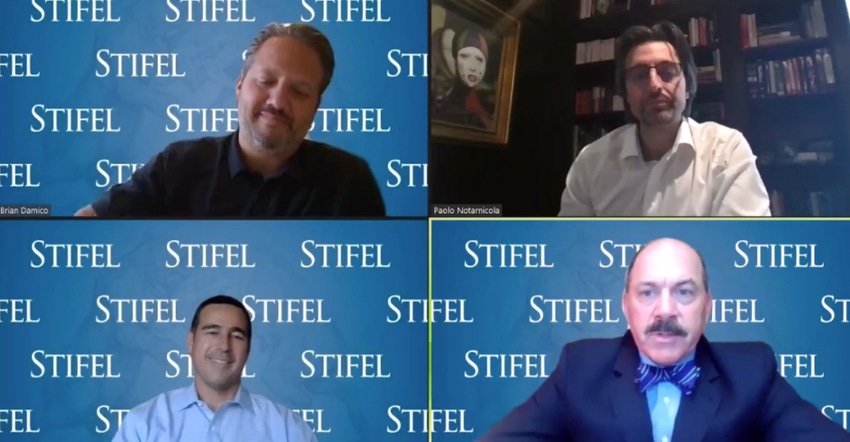
At this month’s Waste360/Stifel Investor Summit, held online, one of the sessions looked at “What Makes this Segment a Focus of Private Equity?”
The panelists that took part in the discussion were:
Brian D'Amico, Managing Partner, Summer Street Capital Partners
Rob Michalik, Kinderhook Industries, LLC
Paolo Notarnicola, Partner, BC Partners, Inc.
Michael E. Hoffman, Managing Director, Stifel Financial Corp., moderated
Highlights of the conversation follow.
Q: If someone is looking to bring capital into the business, what is the sales pitch for you—why you should be part of the conversation?
D’Amico: People. It’s the team that is getting support from that limited partnership (LP) community, but that team is also built on a network of relationships that drive deal flow and opportunities and ultimately that’s how you build the return; the track record—accessing that network of relationships to drive deal flow, especially in today’s environment where it’s difficult to find attractive deals at fair valuations.
Q: What has made environmental services attractive to you as investors?
D’Amico: The pandemic has highlighted one of the critical characteristics of the sector: that it’s an essential service, especially when you’re looking at solid waste, industrial and medical. Those are essential services that have a recurring revenue stream — characteristics you like in any business. Also the ability to deploy capital in the sector has been attractive with opportunities for economies of scale to create incremental value. And there’s generally an attractive exit market.
Notarnicola: The stability of the sector—the fact that we were able do an IPO for GFL right at the beginning of the pandemic tells you a lot about what a fantastic industry this is. The sector is attractive because it generates cash flow, and management can make a real difference.
Michalik: Yes, it is a management-focused industry. Particularly on the municipal waste side. It’s akin to a football team where you have the have the right coach. You can’t ignore that relative to the value of the infrastructure-type assets.
Q: If I’m a services company looking to get capital, what’s my lifecycle look like as far as my ownership base, and is it likely I’ll end up with a second PE owner before sale?
Michalik: Today it’s about driving growth. You have to consolidate and take advantage of the fact that there are a lot of smaller players. And you’re using less leverage to drive growth both organically and acquisition-led. It is a capital-intensive business and ultimately a fund is going to reach its limits in terms of diversity which could lead to a sale that another fund takes up—driving growth along the PE food chain.
The panelists went on to talk about what it is like to work with their respective firms, how they see their ongoing role in their “marriage” with companies they are invested in, and their outlook for the future.
About the Author(s)
You May Also Like




